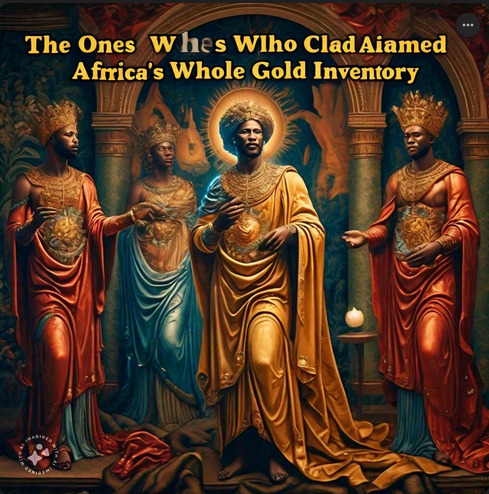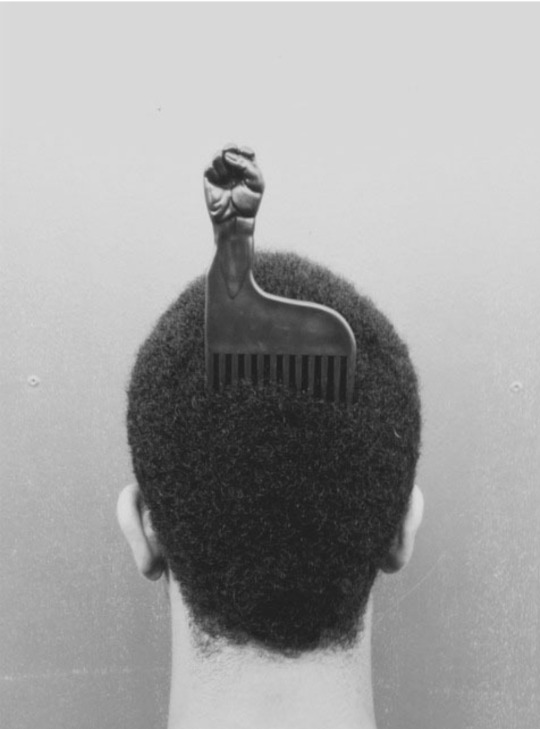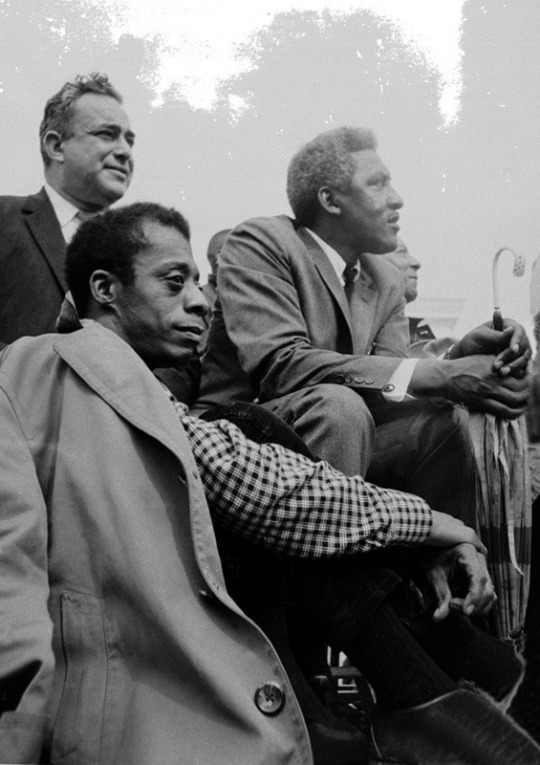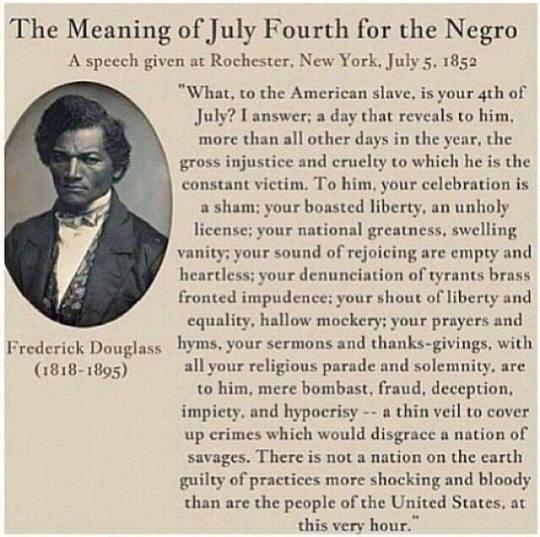#African civilizations
Explore tagged Tumblr posts
Text
Exploring the Legacy and Influence of Cheikh Anta Diop: A Pivotal Figure in Academia
Cheikh Anta Diop was a multifaceted Senegalese scholar whose far-reaching work spanned the realms of history, anthropology, physics, and politics. He emerged as a prominent figure in the study of the origins of human civilization and pre-colonial African culture, asking pivotal questions about cultural bias in scientific research. His profound insights significantly contributed to the…

View On WordPress
#African civilizations#African History#African intellectual history#Afrocentricity#Ancient Egyptians#ancient egyptians history#Black people#Cheikh Anta Diop#Senegalese anthropologist#Senegalese historian#Senegalese physicist#West African#West African history
89 notes
·
View notes
Text
The Ones Who Claimed Africa's Whole Gold Inventory
At any point might you at some point comprehend that Elon, musk, Jeff, Bezos or Bernard Arnold are only walking around the domain of the rich? In no way, shape or form these refined men have shot themselves to an unbelievable status, standing side by side with the titans of abundance all through the chronicles of history. Presently, how about we set out on a fascinating excursion to investigate and reveal the tales of the genuine heavyweights. Who've made a permanent imprint on the abundance scene across hundreds of years, John d Rockefeller. While diving into the records of history's most affluent people, we unavoidably experience faces that become the stuff of dreams for scheme, scholars around the world, john d Rockefeller is exactly one such figure.

#Africa#gold#wealth#history#colonization#European conquest#resource exploitation#African riches#gold mining#imperialism#economic exploitation#African history#colonization of Africa#African resources#gold reserves#African wealth#European settlers#African colonization#European imperialism#gold production#African economy#European powers#African nations#colonialism#African civilizations#African gold trade#European dominance#African exploitation#African heritage
0 notes
Text

Let's go!!!
#black literature#black history#black tumblr#black excellence#black community#civil rights#black history is american history#black lives still matter#black lives matter#black history month#black history facts#black history matters#american#american history#african american#blackexcellence365#college education#educators
587 notes
·
View notes
Text
Leftist antisemitism is a symptom - American Jews and the Illiberal Left
TLDR: I think we would be wise to stop regarding leftist antisemitism only in its own context and habitually recognize it is a part of a larger issue, the rise of the illiberal left.
Why are Jews are the most reliable supporters of Liberal policies and politicians in modern American history?
Haviv Rettig Gur seems to suggest that Jews in the US, recognizing that Liberal values resulted in their (imperfect but historic) emancipation in the US, became perhaps the most Liberal people ever. They understood that US Liberal values were what made Jews relatively safe in the US, and offered them opportunities which had been denied to them everywhere else.
When previously did a head of state speak to Jews the way George Washington did?
Gur suggests that this is why American Jews have historically been so invested in the struggle of black folks in the US. When I say invested, I'm talking about facts like these:
- Henry Moscowitz was one of the founders of the NAACP.
- Kivie Kaplan, a vice-chairman of the Union of American Hebrew Congregations (now called the Union for Reform Judaism), served as the national president of the NAACP from 1966 to 1975.
- From 1910 to 1940, more than 2,000 primary and secondary schools and 20 Black colleges (including Howard, Dillard and Fisk universities) were established in whole or in part by contributions from Jewish philanthropist Julius Rosenwald. At the height of the so-called "Rosenwald schools," nearly 40 percent of Black people in the south were educated at one of these institutions.
- Jews made up half of the young people who participated in the Mississippi Freedom Summer of 1964.
- Leaders of the Reform Movement were arrested with Rev. Dr. Martin Luther King, Jr. in St. Augustine, Florida in 1964 after a challenge to racial segregation in public accommodations.
- Rabbi Abraham Joshua Heschel marched arm-in-arm with Dr. King in his 1965 March on Selma.
- The Civil Rights Act of 1964 and the Voting Rights Act of 1965 were drafted in the conference room of Religious Action Center of Reform Judaism, under the aegis of the Leadership Conference, which for decades was located in the RAC's building.
When I was a child and asked my mother why Jews seemed overwhelmingly to be Democrats, I was told "because of FDR and the Civil Rights movement." That's not wrong, in Gur's framing, but perhaps a more shallow response than the question deserves.
In Gur's framing, US Jews realized that the promises of Liberalism, over and over, no matter how much they delivered for other peoples, did not deliver for black Americans.
Gur suggests that US Jews worked to see that change for their black co-citizens because if American Liberalism didn't deliver for black Americans what it appeared to promise to all Americans, the sense of safety, security, and belonging which Jews felt in the US was an illusion.
US Jews believed that we had common cause with non-Jewish American Liberals. We thought non-Jewish liberals believed what we believed about universal civil rights, pluralism, enlightenment values and enlightenment reason. When Jews saw the "In this House We Believe" signs on our neighbors' lawns, We felt comforted because those beliefs are also our beliefs.

We thought, for instance, that our non-Jewish friends agreed that Liberal democracies were better for human rights than any form of government in the history of human societies. We thought they agreed that religious, racial, and ethnic intolerance were social ills which needed to be fought with information. We thought they valued data, reason, and reliable sources.
Since 10/7/23, we've been learning that we were mistaken. We've seen gentiles who we thought shared our values seem to discard those values.
We saw college educated friends share antisemitic (and alarmingly familiar) conspiracy theories about Israeli puppetry of US politics and the return of Nazi and Soviet antisemitic slogans/images.
We've seen highly educated "Liberals" preach ahistoric nonsense denying that the Jewish people are from the Levant and willfully ignoring the huge swaths of historical fact which don't support their favored narrative.
We've seen friends rage against "globalists" and "Zionists," when what they mean is 'Jews'.
We've seen people who we thought were allies against all forms of racism justify their racism towards Jews as righteous through specious reasoning like 'I don't hate Jews, just the 97% of Jews who believe that Jews should have self-determination in their homeland.'
We've been told that we cannot ask them to temper their use of antisemitic tropes, because doing so "weaponizes" concerns about antisemitism to obstruct them from their righteous crusade against the most evil nation on earth...which happens to be the only Jewish nation.
Despite this, about 80% of Jewish voters voted for Harris over Trump.
I think US Jews will continue to be Liberals, because Liberal values are dear to us and aligned with our values as Jews, as a historically oppressed minority, and as Americans who see more clearly than some others the gap between the promise of American liberalism and its long-delayed universal delivery.
The problem, I think, is in how many of our former friends simply aren't Liberals any longer.
I think Jews in the US need to spend a good deal more time scrutinizing the illiberal left.
Nine days after the attacks of 10/7/23, Jonathan Chait wrote:
Writers like Michelle Goldberg, Julia Ioffe, and my colleague Eric Levitz, all of whom rank among the writers I most admire, have written anguished columns about the alienation of Jewish progressives from the far left. I think all their points are totally correct. But I find the frame of their response too narrow. They are treating apologias for Hamas as a factually or logically flawed application of left-wing ideals. I believe, to the contrary, that Hamas defenders are applying their own principles correctly. The problem is the principles themselves.
...
Liberals believe political rights are universal. Basic principles like democracy, free speech, and human rights apply equally to all people, without regard to the content of their political values. (This of course very much includes Palestinians, who deserve the same rights as Jews or any other people, and whose humanity is habitually ignored by Israeli conservatives and their American allies.) A liberal would abhor the use of political violence or repression, however evil the targets.
...
The illiberal left believes treating everybody equally, when the power is so unequal, merely serves to maintain existing structures of power. It follows from their critique that the legitimacy of a tactic can only be assessed with reference to whether it is being used by the oppressor or the oppressed. Is it okay for, say, a mob of protesters to shout down a lecture? Liberals would say no. Illiberal leftists would need to know who was the speaker and who was the mob before they could answer.
...
One observation I’ve shared with many analysts well to my left is that the debate over this illiberalism and the social norms it has spawned — demands for deference in the name of allyship, describing opposing ideas as a form of harm, and so on — has tracked an older debate within the left over communism. Communism provided real-world evidence of how an ideology that denies political rights to anybody deemed to be the oppressor laid the theoretical groundwork for repression and murder.
There have been conscious echoes of this old divide in the current dispute over Hamas. The left-wing historian Gabriel Winant has a column in Dissent urging progressives not to mourn dead Israeli civilians because that sentiment will be used to advance the Zionist project. Winant sounds eerily like an old communist fellow traveler explaining that the murders of the kulaks or the Hungarian nationalists are the necessary price of defending the revolution. “The impulse, repeatedly called ‘humane’ over the past week, to find peace by acknowledging equally the losses on all sides rests on a fantasy that mourning can be depoliticized,” he argues, calling such soft-minded sentiment “a new Red Scare.” Making the perfect omelette always requires some broken eggs in the form of innocent people who made the historical error of belonging to, or perhaps being born into, an enemy class.
But more than three decades have passed since the Soviet Union existed or China’s government was recognizably Marxist. And so the liberal warning about the threat of left-wing illiberalism seemed abstract and bloodless. On October 7, it suddenly became bloody and concrete. It didn’t happen here, of course. The shock of it was that many leftists revealed just how far they would be willing to follow their principles. “People have repeated over and over again over the last few days that you ‘cannot tell Palestinians how to resist,’” notes (without contradicting the sentiment) Arielle Angel, editor-in-chief of the left-wing Jewish Currents. Concepts like this, treating the self-appointed representative of any oppressed group as beyond criticism, are banal on the left. Yet for some progressive Jews, it is shocking to see it extended to the slaughter of babies, even though that is its logical endpoint. The radical rhetoric of decolonization, with its glaring absence of any limiting principles, was not just a rhetorical cover to bully some hapless school administrator into changing the curriculum. Phrases like “by any means necessary” were not just figures of speech. Any means included any means, very much including murder.
Both Julia Ioffe and Eric Levitz have pointed out that decolonization logic ignores the fact that half of Israel’s Jewish population does not have European origins and came to Israel after suffering the same ethnic cleansing as the Palestinians. This is correct. But what if it weren’t? If every Israeli Jew descended from Ashkenazi stock, would it be okay to shoot their babies?
The problem is much greater than leftist antisemitism. The illiberal left has become nearly as great a threat to Liberalism as the far right.
It is often the case that a movement’s treatment of Jews serves as a broader indicator of its health. It’s not an accident that the Republican Party has become more attractive to antisemites as it has grown more paranoid and authoritarian. What the far left revealed about its disposition toward Jews is not just a warning for the Jews but a warning for all progressives who care about democracy and humanity. The pro-Hamas left is not merely indicating an indifference toward Jews. It is revealing the illiberal left’s inherent cruelty, repression, and inhumanity.
I'm annoyed that it is has taken me so long to catch on and alarmed by the implications.
I am, however, very proud of my 14yo, who sums up her experience trying to respectfully disagree with leftists this way:
"They're allergic to nuance."
#civil rights movement#liberalism#US History#jewish history#jewish american history#american jews#Jumblr#african americans#Black Americans#Illiberal left#far left#leftist antisemitism#leftist antizionism
585 notes
·
View notes
Text

"All my life I've had to fight."
#black history#blacklivesmatter#black lives matter#collage#black people#black excellence#black culture#black panther party#black history month#black community#black unity#black americans#african american#civil rights movement
248 notes
·
View notes
Text
"South Carolina is preparing to put up its first individual statue for an African American on its Statehouse lawn, honoring a man who put on Confederate clothes in order to steal a slaveholder’s ship and sail his family and a dozen others to freedom during the Civil War.
But Robert Smalls isn’t just being honored for his audacious escape. He spent a decade in the US House, helped rewrite South Carolina’s constitution to allow Black men equality after the Civil War and then put up a valiant but doomed fight when racists returned to power and eliminated nearly all of the gains Smalls fought for.
State Rep. Jermaine Johnson can’t wait to bring his children to the Statehouse to finally see someone who is Black like them being honored.
“The man has done so many great things, it’s just a travesty he has not been honored until now. Heck, it’s also a travesty there isn’t some big Hollywood movie out there about his life,” said Johnson, a Democrat from a district just a few miles from the Statehouse.
The idea for a statue to Smalls has been percolating for years. But there was always quiet opposition preventing a bill from getting a hearing. That changed in 2024 as the proposal made it unanimously through the state House and Senate on the back of Republican Rep. Brandon Cox of Goose Creek.
“South Carolina is a great state. We��ve got a lot of history, good and bad. This is our good history,” Cox said.
What will the Robert Smalls memorial look like?
The bill created a special committee that has until January 15 to come up with a design, a location on the Statehouse lawn and the money to pay for whatever memorial they choose.
But supporters face a challenging question: What best honors Smalls?
If it’s just one statue, is it best to honor the steel-nerved ship pilot who waited for all the white crew to leave, then mimicked hand signals and whistle toots to get through Confederate checkpoints, while hoping Confederate soldiers didn’t notice a Black man under the hat in the pale moonlight in May 1862?
Or would a more fitting tribute to Smalls be to recognize the statesman who served in the South Carolina House and Senate and the US House after the Civil War? Smalls bought his master’s house in Beaufort in part with money made for turning the Confederate ship over to Union forces, then allowed the man’s penniless wife to live there when she was widowed.
Or is the elder Smalls who fought for education for all and to keep the gains African Americans made during the Civil War the man most worth publicly memorializing? Smalls would see a new constitution in 1895 wipe out African Americans’ right to vote. He was fired from his federal customs collector job in 1913 when then President Woodrow Wilson purged a large number of Black men out of government jobs.
Or would it be best to combine them all in some way? That’s how Republican Rep. Chip Campsen, an occasional ship pilot himself, sees honoring one of his favorite South Carolinians.
“The best way to sum up Robert Smalls’ life is it was a fight for freedom as a slave, as a pilot and as a statesman,” Campsen said."
-via AP, Octtober 23, 2024
#south carolina#united states#us politics#robert smalls#black history#black excellence#civil war#us history#memorial#african american history#good news#hope
370 notes
·
View notes
Text

Civil Rights March on Washington, D.C. [A male marcher relaxing.] - 1963
NAID: 542026
#Black History Month#Civil Rights March#Photography#African American History#Black History#National Archives
294 notes
·
View notes
Text

Black Periodicals: From the Great Migration through Black Power by Reveal Digital, is a transformative open access resource for librarians, faculty, and students engaging with Black history, social justice, and cultural studies.
Spanning over 75,000 pages of mid-20th-century periodicals, the collection amplifies the voices of Black Americans and their global counterparts. It features a wide range of materials, including women’s advocacy newsletters, labor union publications, and international periodicals from Africa, Europe, and the Caribbean. These resources illuminate connections between early 20th-century activism and the Civil Rights era and beyond.
Whether you're building a library collection, crafting a syllabus, or diving into research, this collection provides unparalleled access to the literature, politics, and culture that shaped a pivotal century.
Explore the collection.
#jstor#reveal digital#open access#resource#librarians#faculty#students#research#academic research#black history#social justice#cultural studies#african history#european history#caribbean history#civil rights
324 notes
·
View notes
Text

Photograph of Private Hubbard Pryor After Enlistment in 44th U.S. Colored Troops Infantry Regiment
Record Group 94: Records of the Adjutant General's OfficeSeries: Letters ReceivedFile Unit: Consolidated File for Colonel R. D. Mussey
This photograph was enclosed in a letter. The original caption reads: Private Hubbard Pryor After Enlistment in 44th USCT.
This is a sepia-toned photograph of an African-American soldier in a Union uniform. He stands at attention looking directly at the camera. His rifle is slung over his shoulder.
151 notes
·
View notes
Text
TOMB OF RECHMIRE TT100 | PRIVATE TOMB Of 18th Dynasty Ancient Kemet and The Legacy of Rekhmire
The Theban Tomb TT100 is located in Sheikh Abd el-Qurna, part of the Theban Necropolis, on the west bank of the Nile, opposite Luxor. It is the mortuary chapel of the ancient Egyptian vizier Rekhmire. There is no burial chamber next to this chapel. The vizier’s tomb is elsewhere, perhaps even in the Valley of the Kings. In ancient Kemet, the 18th dynasty was characterized by exceptional peace…

View On WordPress
#African civilizations#African History#Ancient Egyptians#ancient egyptians history#Rekhmire#Sheikh Abd el-Qurna#Theban Necropolis#Theban Tomb TT100
0 notes
Text






Civil Rights For All
All Black Lives Matter
#my collage#black gay men#gay#african american#lgbt#achillean#black gay magic#blackboyjoy#gay pride#lgbt pride#black pride#black men#civil rights#civil unrest#american dream#Americana#dark academia#black academia#black history#history#american history#bayard rustin#james baldwin#black gay
650 notes
·
View notes
Text

#black tumblr#black literature#black history#black excellence#black community#civil rights#black history is american history#civil rights movement#black girl magic#blackexcellence365#equal rights#equality#equal#black americans#black history matters#black history month#americans#african american#american
160 notes
·
View notes
Text



Fannie Lou Hamer (1917–1977) was a civil rights leader, voting rights activist, and advocate for Black political and economic empowerment. She was one of the most fearless voices in the fight against racial oppression in the United States, using her grassroots organizing, powerful speeches, and unwavering courage to challenge white supremacy and systemic disenfranchisement.
Born in Montgomery County, Mississippi, to a family of sharecroppers, Hamer experienced firsthand the brutality of Jim Crow racism and economic exploitation. She worked on plantations from an early age and endured extreme poverty and oppression. In 1962, at the age of 44, she attended a meeting led by the Student Nonviolent Coordinating Committee (SNCC) and the Southern Christian Leadership Conference (SCLC), where she learned about her constitutional right to vote. Inspired, she attempted to register but faced violent retaliation from white authorities, losing her job and being evicted from the plantation where she had lived for nearly two decades.
Despite these threats, Hamer became one of the most influential voting rights organizers in the Deep South. She co-founded the Mississippi Freedom Democratic Party (MFDP) in 1964 to challenge the all-white Democratic Party that excluded Black participation. At the Democratic National Convention that year, she delivered a searing testimony on national television, detailing the violent beatings and terror Black people endured when trying to vote. Her speech was so powerful that President Lyndon B. Johnson attempted to interrupt the broadcast, but her words still reached millions and exposed the hypocrisy of American democracy.
Hamer was also a staunch advocate for Black economic self-sufficiency. She launched the Freedom Farm Cooperative, a land-buying initiative to help Black families escape economic dependency on white landowners. Through this program, she provided land, food, and resources to poor Black farmers, emphasizing that political rights meant little without economic independence.
Her activism extended beyond voting rights—she fought for education, healthcare, and women’s rights, particularly for Black women who faced racism, sexism, and economic exploitation. She was a fierce critic of the forced sterilization of Black women, a practice she personally endured when she was unknowingly sterilized in 1961 during a medical procedure—a form of racial and reproductive control known as the “Mississippi appendectomy.”
Despite facing death threats, physical assaults, and political opposition, Hamer never wavered in her commitment to justice. Her most famous quote, “I’m sick and tired of being sick and tired,” became a rallying cry for the movement. She continued organizing for Black empowerment until her death in 1977.
Fannie Lou Hamer’s legacy is one of radical courage, grassroots activism, and an unshakable belief in Black self-determination. She proved that ordinary people could be extraordinary leaders, and her work laid the foundation for future struggles for voting rights, economic justice, and Black political power.
#fannie lou hamer#black history#black people#blacktumblr#black tumblr#black#pan africanism#black conscious#africa#black power#black empowering#strong black woman#civil rights#black community#african diaspora#black diaspora#black revolutionaries#black leaders
61 notes
·
View notes
Text
Fuck the government and Happy Black History Month

#sfw agere#agere blog#little space#sfw regression#age regression community#age regression caregiver#age regressor#agere little#sfw interaction only#agere community#black lives matter#black history#black history month#civil rights movement#african history
63 notes
·
View notes
Text

#african americans rights#african american history#underground railroad#slavery#civil war#black lives matter#civil rights movement#the narrative of the live of frederick douglass#frederick douglass#fourth of july
706 notes
·
View notes
Text

This makes Tiana the Princess of Creole Cuisine!
🍽️👩🏾🦱👑
#history#princess tiana#leah chase#juneteenth#new orleans#african american history#disney#princess and the frog#united states#1950s#womens history#1960s#disney princess#animation#creole#soft girl#girl power#tiana's bayou adventure#disney history#black femininity#american history#civil rights#dooky chase#princesscore#black girl magic#historical figures#food history#landmark#nickys facts
138 notes
·
View notes